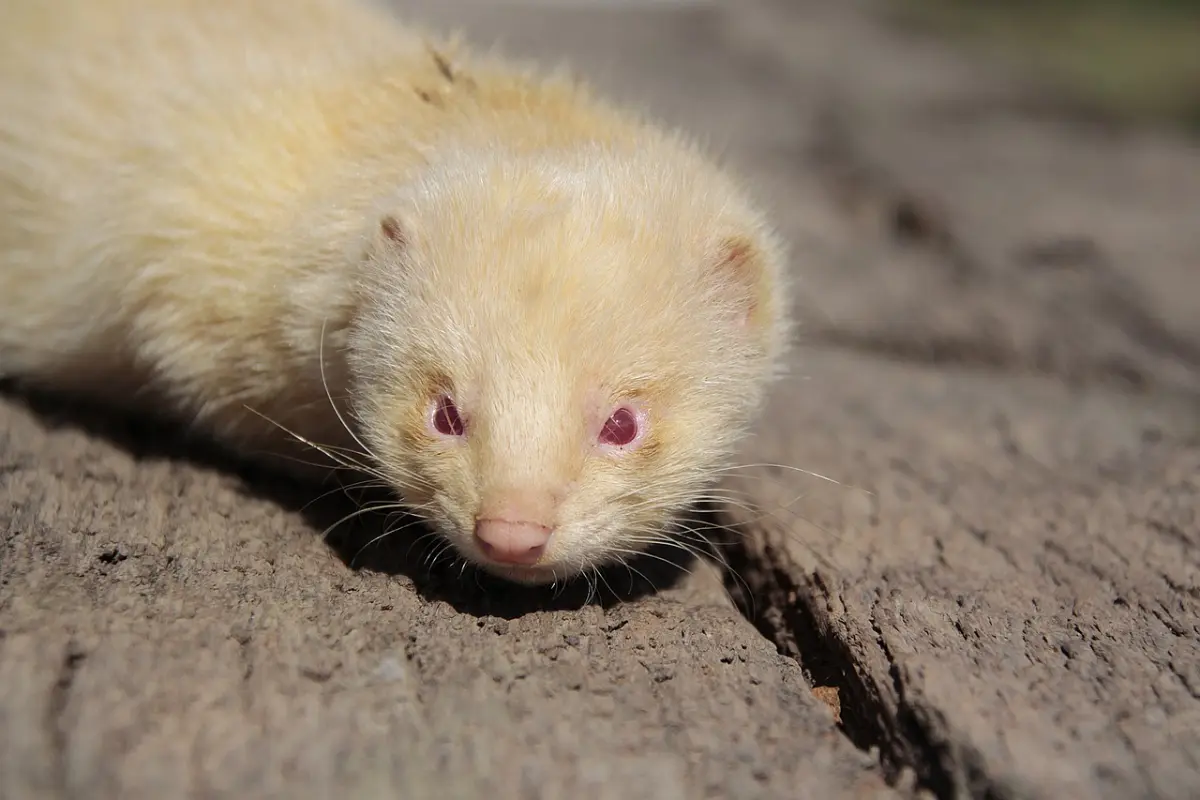As the popularity of ferrets as pets continue to rise, so does the importance of providing them with the best possible care. One question that frequently arises is, “Can I feed my ferret candy?” However, as a responsible ferret owner, it’s crucial to understand their dietary needs and the potential consequences of feeding them the wrong foods. We will delve into the answer to this question, the potential hazards involved, and the optimal dietary practices for a healthy and content ferret.
In the wild, ferrets would typically feed on small mammals, birds, and insects. Their bodies are designed to process and extract nutrients from these protein-rich sources, and they have a very limited ability to digest carbohydrates and sugars.
Verdict:
Feeding your ferret candy, which is high in sugar and artificial ingredients, can lead to severe health problems and is not advisable. The Short Answer to the Question: No, Don’t Feed Candy to Your Ferrets.

The Dangers of Candy for Ferrets
Candy is a human food and while it might be tempting to share a sweet meal with your ferret, doing so can have serious consequences for their health. Here are some reasons why candy is not suitable for ferrets:
- Digestive Issues: Ferrets have a short digestive tract, which means that they are not equipped to process large amounts of sugar or carbohydrates. Feeding your ferret candy can lead to digestive issues such as diarrhea, vomiting, and even intestinal blockages.
- Obesity and Diabetes: Ferrets are prone to obesity and diabetes, both of which can be exacerbated by consuming high-sugar foods like candy. Obesity can lead to a host of health problems, including heart disease, liver disease, and joint issues. Diabetes in ferrets is a serious and often life-threatening condition that requires lifelong management.
- Tooth Decay and Dental Problems: Ferrets have sharp teeth that are designed for tearing and consuming meat. They are not well-equipped to handle sugary foods, which can lead to tooth decay, gum disease, and other dental problems.
- Nutritional Deficiencies: Feeding your ferret candy can lead to nutritional deficiencies, as they will not be receiving the essential nutrients they need from their regular diet. This can result in a weakened immune system, poor coat condition, and a range of other health issues.
- Insulinoma: Ferrets are prone to developing insulinoma, a type of pancreatic cancer that affects insulin production. A high-sugar diet, like one that includes candy, can increase the risk of developing this disease.
The Ideal Ferret Diet
To ensure your ferret’s health and happiness, it is essential to provide them with a balanced diet that meets their unique nutritional needs. The ideal ferret diet should include:
- High-quality, meat-based protein: Ferrets require a diet that is high in animal proteins. Look for high-quality ferret food that lists meat or meat meal as the first ingredient. You can also supplement your ferret’s diet with raw or cooked meats like chicken, turkey, or beef.
- Low in carbohydrates: Ferrets have a limited ability to digest carbohydrates, so their diet should be low in grains, fruits, and vegetables.
- Adequate fat content: Ferrets require a diet that is high in fat to maintain their energy levels. Look for ferret food that contains healthy fats, such as those found in fish oil or chicken fat.
- Limited treats: While it’s tempting to spoil your ferret with treats, it’s important to limit these to maintain a balanced diet. Stick to meat-based treats, such as freeze-dried chicken or turkey, and avoid sugary treats like candy.
Conclusion
A wrong feeding plan can have serious consequences for their health. Instead, focus on providing your pet with a balanced, species-appropriate diet and offering healthy, nutritious meals that cater to their natural instincts and dietary needs. By doing so, you’ll ensure that your ferret stays happy, healthy, and full of energy for years to come.
